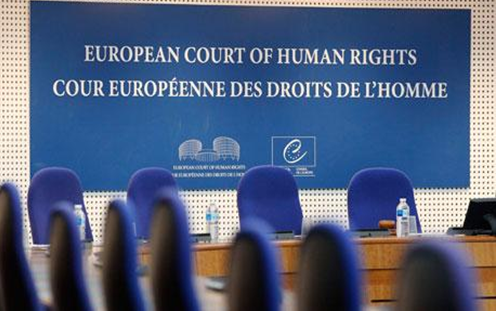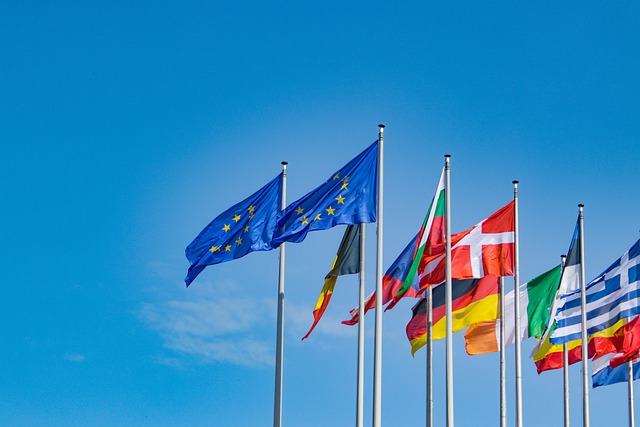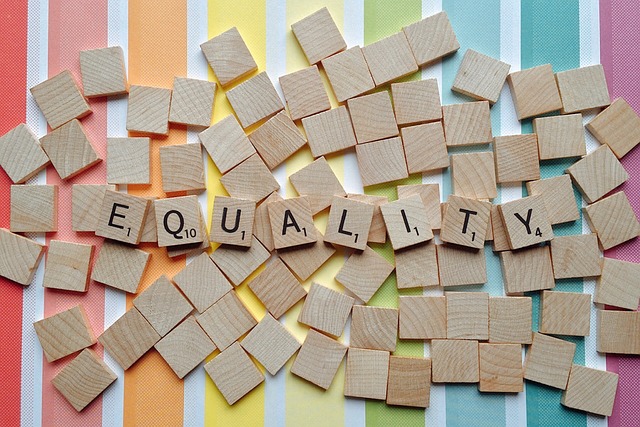Πολυεθνικές εταιρίες ανθρώπινα δικαιώματα και Διεθνές Δίκαιο. Του Β. Αποστολόπουλου

Από τον Βασίλη Αποστολόπουλο, Δικηγόρο, LLM
Πρόλογος
Στα πλαίσια της συνεχώς διευρυνόμενης παγκοσμιοποίησης στο χώρο των εμπορικών δράσεων των πολυεθνικών εταιρειών, η ισχύς των τελευταίων αυξάνεται ραγδαία σε σχέση με τις αδύναμες τρίτες χώρες, στις οποίες λαμβάνουν χώρα οι εμπορικές τους δραστηριότητες.
Αυτό έχει ως αποτέλεσμα, συχνά οι τοπικοί νόμοι να παραβλέπονται ή και να καταστρατηγούνται προς χάριν της εξυπηρέτησης των επιχειρηματικών συμφερόντων που αποβλέπουν πρωτίστως στο κέρδος, αψηφώντας ή παραβιάζοντας θεμελιώδη ανθρώπινα δικαιώματα των τοπικών κοινωνιών.
Στην πραγματικότητα, αυτό έχει οδηγήσει τις κυβερνήσεις πολλών τρίτων χωρών, που διεκδικούν τις εν λόγω επενδύσεις, είτε για την επιβίωση και τη βιωσιμότητα των κρατών τους, είτε γιατί είναι οι ίδιες διεφθαρμένες και αποσκοπούν στην αύξηση του προσωπικού τους «θησαυροφυλακίου», σε έναν ανταγωνισμό χαλάρωσης των κανονιστικών νόμων όσον αφορά την προστασία των ανθρώπινων και εργατικών δικαιωμάτων, καθώς και του περιβάλλοντος, με σκοπό την προσέλκυση των ξένων επενδυτών.
Υπό το φως του ανωτέρω απειλούμενου κινδύνου ενάντια στα ανθρώπινα δικαιώματα διεθνώς και ελλείψει ενός κανονιστικού σώματος σε παγκόσμιο επίπεδο που να επιβλέπει και να επιτηρεί τις δραστηριότητες των παραπάνω πολυεθνικών εταιρειών, την τελευταία δεκαετία έχει πραγματοποιηθεί μια σειρά μακρών συζητήσεων και διαβουλεύσεων μεταξύ των Ηνωμένων Εθνών σχετικά με το ζήτημα αποτελεσματικής αντιμετώπισης της συνεχούς παραβίασης των ανθρωπίνων δικαιωμάτων από τις πολυεθνικές εταιρείες εντός των περιοχών, στις οποίες αυτές ασκούν εμπορικές δραστηριότητες.
Οι παραπάνω συζητήσεις κορυφώθηκαν στη διατύπωση ενός μη δεσμευτικού Οδηγού Βασικών Αρχών από τα Ηνωμένα Έθνη που σκιαγραφούν και υποδεικνύουν ένα πλαίσιο κανόνων, τους οποίους θα πρέπει τόσο τα κράτη που φιλοξενούν τις πολυεθνικές εταιρείες, όσο και οι ίδιοι επιχειρηματικοί οργανισμοί να εφαρμόζουν και να ενσωματώνουν στη στρατηγική τους, έτσι ώστε να αποτρέπουν, μετριάζουν ή να αποκαθιστούν τις τυχόν παραβιάσεις των ανθρωπίνων δικαιωμάτων που προκαλούνται από αυτές.
Ειδικότερα, στα ως άνω εθελοντικά μέτρα, που επικυρώθηκαν ομόφωνα τον Ιούνιο του 2011 και στηρίζονται στο εκτενές έργο του ειδικού αντιπροσώπου καθηγητή John Ruggie, στον οποίο ανατέθηκε, από την Επιτροπή των Ηνωμένων Εθνών το 2005, το έργο αναζήτησης λύσης στο παραπάνω πρόβλημα παραβιάσεων των ανθρωπίνων δικαιωμάτων από τους ξένους επιχειρηματικούς οργανισμούς, αναπτύσσονται οι τρεις πυλώνες προστασίας και σεβασμού των ανθρωπίνων δικαιωμάτων, καθώς και αποκατάστασης των θυμάτων από τυχόν παραβιάσεις. Έτσι, υποδεικνύουν στα μεν κράτη να προστατεύουν τα ατομικά δικαιώματα, στις δε εταιρείες να ασκούν την προσήκουσα επιμέλεια ώστε να σέβονται τα ανωτέρω δικαιώματα. Επιπλέον, υποδεικνύουν την ανάγκη ύπαρξης αποτελεσματικών, στέρεων μηχανισμών δικαστικής ή μη δικαστικής προσφυγής των θυμάτων ανθρωπίνων δικαιωμάτων που παραβιάζονται από τις πολυεθνικές εταιρείες.
Ενόψει του εθελοντικού/μη δεσμευτικού χαρακτήρα, ωστόσο, του ως άνω πλαισίου που υποδεικνύει τον τρόπο με τον οποίο θα πρέπει να συμπεριφέρονται τόσο τα κράτη, όσο και οι πολυεθνικοί οργανισμοί και ελλείψει μιας Διεθνούς Σύμβασης που να επιβάλλει υποχρεώσεις, δεν είναι λίγες οι τοπικές κυβερνήσεις όπως και οι πολυεθνικές εταιρείες που αρνούνται να συμμορφωθούν με τον παραπάνω Οδηγό Βασικών Αρχών των Ηνωμένων Εθνών θυσιάζοντας τα τεράστια οφέλη που μπορούν δυνητικά να καρπωθούν από τις επενδύσεις μόνο και μόνο για να σεβαστούν και να προστατεύσουν τα ανθρώπινα δικαιώματα των γηγενών κατοίκων.
Κατ’ ακολουθίαν, σκοπός της συγκεκριμένης μελέτης είναι να παρουσιάσει και να υποστηρίξει τους λόγους για τους οποίους είναι αναγκαία η επιβολή δεσμευτικών υποχρεώσεων αντί των εθελοντικών μέτρων των Ηνωμένων Εθνών που ισχύουν μέχρι σήμερα και εφαρμόζονται από ελάχιστα κράτη και εταιρείες εξαιτίας ακριβώς της εθελοντικής τους φύσης.
Title
Presenting my argument for mandatory compliance with human rights norms as a, theoretically speaking, representative of a human rights non-governmental organisation (NGO) sitting at the same table with John Ruggie before the adoption of the Guiding Principles, founded on grounds for the failed efforts of voluntary compliance.
Introduction
Multinational corporations are increasingly growing in power more than many developing economies. In addition, the rapid expansion of globalisation in the context of multinational business activity[1] has meant that developing countries must compete in order to tempt businesses into investing there. In reality, this can lead to a ‘race to the bottom’, whereby host states are often willing to lax their standards in terms of regulation in the area of human rights, environmental and labour protection so as to lure businesses in their own interests.
Underprivileged humans are being affected in their daily lives by human rights violations committed by businesses operating around the world. To this day there has been no regulatory body at the global level to monitor and oversee corporate activities across the globe, but after prolonged international debate/consultations and action over the past decade, broad international soft law mechanisms have been adopted in an effort to tackle these issues in the form of guidelines and non-binding codes of conduct, such as the United Nations Guiding Principles on Human Rights and Business (from hereafter “UNGPs” or “Guiding Principles”) with the corporate responsibility being at its core.[2] These voluntary principles, unanimously endorsed in June 2011, build on extensive work by Professor John Ruggie established by the U.N. Commission in 2005 as a mandate for a Special Representative of the Secretary-General to deal with the issue of infringements of human rights by business enterprises.[3] Primarily founded on the UN “Protect, Respect and Remedy” Framework which outlines a set of principles that States and businesses ought to implement to deter, mitigate or rectify human rights violations committed by corporations, the “UNGPs” are generally structured around the distinction of the three interrelated pillars that exists between the State’s duty to protect individual’s human rights from corporate-related human rights violations and the corporate duty to respect those human rights through exercising due diligence. They also call for effective grievance mechanisms to be in place at the core of ensuring access to “judicial or non-judicial remedies” for people harmed.[4]
In this context, the growing role of businesses as a duty-bearer of human rights to carry out due diligence[5] to implement the principles throughout their global activities is a welcome development.
Many MNCs have already integrated the UNGPs within their codes of conduct. The same is also true with NGO engagements and literature. However, this is not enough as the Guiding Principles provide just a voluntary framework of measures. In reality, the business community would take very little interest and would have scant incentive in complying with any voluntary measures to respect human rights if they were not put under any legal pressure to exercise due diligence to fulfil the three pillars, to be discussed shortly. In the quest to adopt the UN norms, NGOs have been pressing for binding obligations on business to improve human rights by protesting. These protests, however, received negative response from the business community which opposed/disapproved the idea of imposing obligatory requirements insisting on rather proposed voluntary measures.
That said, the aim of this study is to try to present an argument that favours mandatory compliance with human rights norms, providing also examples for the failed efforts of such voluntary compliance which brings no pressure to bear upon States to protect its people from human rights abuses and MNCs to honour their duty to integrate due diligence in their codes of conduct to respect such human rights and apply the Guiding Principles all through their global activities.
NGOs
In the new era where “human rights” is playing a pivotal role in the contemporary world setting, the issue of human rights has driven NGOs to strive to ensure compliance with the global norms designed to shield human rights.[6] NGOs are increasingly becoming legitimate non-state actors who have evolved to almost indispensable players in the agenda of global politics in disseminating and keeping in force global norms set up for the protection of human rights,[7] and in some areas, they have become the main channel through which the natives or the communities can communicate their needs to critical organizations such as the UN. Governments, MNCs and NGOs have engaged into a prolonged discourse on how to respond to the human rights violations that have increased owing to globalization.
As such, NGOs have been effectively playing a pivotal role in pressing for improvement in the protection of human rights by expostulating for the imposition of mandatory requirements rather than voluntary international soft laws, so as to force companies to be more responsible on human rights matters. In this context, since the adoption of the UNGPs, they have undertaken to meet with companies or factory owners to support and aid them in doing their duty to respect human rights and ensure there is access to effective remedy through grievance mechanisms for any harm caused.
The Three Distinct but Interrelated Pillars
As already noted above, in 2011 soft law initiatives were launched to address the issue of the protection of human rights when corporations are involved in activities within host states. As such, Professor John Ruggie issued his final report on the 21st of March in 2011, as a result of wide-ranging multi-stakeholder consultations at the UN, governments, transnational corporations, business leaders and civil society levels, introducing the UN common policy framework and the UNGPs from a multi-stakeholder approach seeking to reduce human rights violations by multinational companies and other non-state actors. They sought to achieve this by tasking governments and businesses with the protection and respect of human rights[8]. The UNGPs were endorsed by the HRC and by that means by the international community at large.[9]
The UNGPs rest on three distinct but interrelated pillars: The State duty to regulate multinational operations within its territories and carry out due diligence measures to safeguard the continued individual’s protection against infringements upon their human rights committed by businesses.[10] The state responsibility to protect as delineated by Pillar 1 would require states to reconsider their local policies with regard to human rights so as to fill in the existing gaps in their regulatory system and access to judicial system to safeguard against human rights violations by businesses.[11]
The nature of the second pillar differs in that it does not impose directly any human rights obligations under international human rights law, something which might lead to practical and legal uncertainty, but it requires business enterprises to ‘do no harm’ and to take steps to safeguard against human rights violations even in the face of poor governance. To achieve this, due diligence obligations, perhaps, through human rights-oriented processes of reporting, acquaintance with human rights issues, upholding the domestic law, and abiding by the standards of international human rights even in the absence of national law or no matter what the host state’s local law may have neglected to take into account, are some of the fundamentals to encourage this pathway forward. [12]
That said, the Guiding Principles certainly are a welcomed development but many business enterprises are still not acquainted with them or do not get their priorities right as the question of raising their coffers takes precedence over all others. Put simply, host states are not generally inclined or even willing to regulate the operations of powerful transnational corporations and sacrifice their potential gains, given the lack of a regulatory entity at the global level to oversee and monitor MNC’s activities and hold them accountable for their involvement in human rights infringements.[13]
As Professor Chip Pitts stresses the UN Guiding Principles are a good place to start but the world needs a treaty on business and human rights.[14] Soft-law initiatives such as the UNGPs are only a voluntary global accountability mechanism,[15] as a result of which only a small percentage of businesses would be likely incentivized or even willing to observe non- binding soft laws, thus failing to achieve transparency as a whole.
To put this in context, this provides the potential for the enactment of a legally-binding UN business and human rights treaty imposing obligations on states and, perhaps, on MNCs as well as extraterritorial regulation.[16] Indeed, the ambitious blueprint of enacting a legally-binding implement like the one reflected by the resolution voted by the HRC in June 2014 with, perhaps, some sort of enforcement mechanism in it to force MNCs and other non-state actors to respect human rights has been kept alive by aspiring NGOs.[17]
Given much of the debate on human rights amongst a group of states within the United Nations system and the NGOs, it is important to consider such a treaty from a wider perspective. It is arguable that local hard laws binding businesses would be quite harsh,[18] whereas creating international treaties with respect to human rights would create a law developed through binding judgements delivered by regional courts at the state level, thus creating a level playing to better ensure enforcement, accountability and efficient redress for the harm caused. [19] Indeed, if the company is itself obliged to account, then this might provide MNCs with a practicable incentive to better ensure that an effective human rights policy is integrated throughout their entire business strategy achieved through the principle of due diligence.
On the other hand, developing and adopting a BHR treaty would likely be a massive basal challenge[20] and even if such a treaty included some sort of enforcement mechanism, it is still arguable that only the most powerful business enterprises would probably appear before it.
As such, it would seem as an imperative to seek to create a regulatory entity at a global level which would boast oversight systems in business operations within the host states and to further improve businesses respect for human rights. That said, the creation of any potential treaty on human rights and business should be primarily designed to support rather than replace the Guiding Principles.
To turn now to the third pillar this is focused on the right to effective remedy by reiterating the international human rights duty which specifically provides that where people are harmed by business operations states and non-state actors must take appropriate steps to safeguard there are specific mechanisms in place to ensure access to effective remedies for human rights victims through judicial or non-judicial means and those going against the rights will be answerable. [21]
The ineffectiveness of International Soft laws/Voluntary measures
The UNGPs has set the table as the onset of the debate in advancing the improvement of human rights. It now rests with the multinational corporations to integrate due diligence in their corporate social responsibility policies in the area of human rights no matter where they operate around the world. However, the Principles provide only a voluntary framework to allocate responsibility amongst all actors to work in partnership to drive forward the idea of entrenching human rights. Experience has shown though that in the absence of international hard law imposing binding obligations and onerous sanctions it is not easy to keep intact the ongoing human rights respect. Professor John Ruggie himself has admitted that there is no easy answer to the problem that can please equally all sides. He may have put forth some useful and interesting ideas for advancing improvement on human rights, but he still needs to include some mandatory requirements to help take his ideas forward, given that host states and their governments are not generally inclined towards backstopping human rights abuses against their people caused by MNCs activities within their territories. If they did so they would likely lose the opportunity to raise their coffers, discussed further below.
Additionally, companies, as already explained, have little incentive to actually implement human rights policies if they are not coerced to do so by hard laws rather than soft laws. They may often tend to promulgate their corporate social responsibility policies supposedly geared towards respecting human rights but in reality they have only their own interests in view intended solely to increase their profitability. As such, they will not hesitate to harm their reputation if they stand to earn a lot. An unblemished name is, in fact, quite indifferent to them if they are to benefit most from their huge and risky investments and increase their profits, unless they were forced under hard laws to implement their duties to exercise due diligence to respect human rights. This clearly suggests adopting hard laws in place of the voluntary soft laws.
It goes without saying therefore that for all the above reasons if a was a representative of a human rights non-governmental organisation sitting at the same table with John Ruggie before the adoption of the Guiding Principles, I could not stress enough the importance for mandatory compliance with human rights norms in preference to voluntary measures, providing examples for the failed efforts of the voluntary framework to achieve the three pillars set out in the Guiding Principles, discussed further below.
Criticism of the UNGPs / Failed efforts of Voluntary Compliance with the Principles to achieve the Three Pillars
There is ongoing discourse amongst scholars who assert that Professor John Ruggie’s framework is relying solely on non-binding good corporate intentions closely connected with conventional national and international legislation, while others look on this connection with distrust stressing on its voluntary character/nature and the absence of provision for specific legal mechanisms linking human rights law with business.[22]
As we have seen, at the time companies’ activities are initiated around the world, the onus is on the host states and their governments to monitor these activities and carry out due diligence measures to ensure an ongoing respect for the human rights of their people against abuses brought about by business activities taking place within their boundaries. Taking care of the protection of human rights is the responsibility of all departments within a state including trained government employees and sufficient funds apportioned for the purpose of shielding human rights. In case of any breach of those duties affecting human rights, the onus is on the host state to mandate a right to concrete remedies.[23]
With voluntary measures in place though, these duties are often disregarded by governments and states which may have domestic laws in place but will not readily enforce them and lose the chance to capitalize upon the big business that takes place within their territory. In this way, they’re seeking to raise the state’s treasury or even their own coffers. As such, in the absence of any international hard laws imposing binding obligations, they often tend to give priority to their own interests over the human needs of their own people who should be able however to protect themselves from human rights abuses and to enjoy the benefits of the rich resources found in their communities.
Indeed, a look at the human rights abuses in countries such as the Papua New Guinea, the Chad-Cameroon, and the Bangladesh where people wanted to preserve their culture and protect their environment, livelihood and their right to take part in the decision-making on such issues adversely affected by business activities will highlight the failed efforts of voluntary compliance in actual practice.
By way of example, we note the Papua New Guinea case[24] where nearly 40 percent of the population lives in poverty and rates of family and sexual violence are amongst the highest throughout the entire world and corruption is widespread, but no perpetrator has ever been charged for any offence so far. In Papua New Guinea, individuals in governmental positions of power want in transparency.[25] In addition, they are not answerable as police and prosecutors most often resolve cases of serious perpetrations such as attempted murder, repeated rape, family violence, and serious injury like the detainment and assault of a doctor by furious policemen during a roadblock on his way home, through mediation or a simple indemnification rather than bringing criminal charges or at least pursuing investigations against the alleged perpetrators.[26]
Given the presence of voluntary measures to implement the Three Pillars set out in Ruggie’s framework, it is evident that the government has failed to take sufficient steps to address corruption, gender disparity, violence, and the beating and torturing of people by rampant police which is hardly ever answerable for the excessive force it uses against its people or criminal suspects. Instead, the government elects to provide services of a charitable nature by resting in considerable measure on NGOs or other religious groups to live up to the social and economic expectations and the rights of its people. It is arguable that should a framework imposing binding obligations at an international level be in place the people in positions of power in this country would be forced to either enforce their own laws and respect human rights or abide by an international legally binding framework providing a specific mechanism for access to concrete remedies for the human rights victims.
By way of further example, we note the Chad-Cameroon Pipeline case[27] where oil companies and the governments of Chad and Cameroon were accused of secretly contracting out of their human rights responsibilities. Accordingly, the competence and readiness of Chad and Cameroon to provide human rights protection to their people was significantly affected/vitiated by the ExxonMobil-led oil consortium which effectively managed to work around the rules of law in the pipeline zone where a pipeline operated by entering into veiled ‘legal’ agreements which wanted in transparency and were kept quiet from public scrutiny until the they came into effect. Indeed, this covert agreement made it hard for Chad and Cameroon to initiate legal proceedings in cases of company misconduct, and/or for human rights victims to seek redress when those rights were allegedly adversely affected by the noxious pipeline operation in their area, such as where villagers were denied access to their land and their sole safe water supply damaging to their well-being with no effective remediation.[28]
It is submitted that human rights have already been compromised and the pipeline project’s secret contracts blazed the trail to further human rights violations,[29] but nobody has yet been willing to open up that can of worms. That said, until human rights protection takes precedence over all others and it is unveiled for public scrutiny, the deleterious climate of terror and intimidation like the one predominating in the pipeline zone in Chad and Cameroon is more likely than not to continue to increase. Arguably, should specific mechanisms be in place providing access to redress, such abuses would have likely never occurred.
Finally we note the failed efforts in the Coles case,[30] which highlights reports of excessive labour abuses in two garment factories in Bangladesh belonging to Chinese interests, despite Coles submission that they had employed the best practice approach to overseeing their supply chain, that they had complied with their own standards, and that in some instances they had even surpassed the domestic law requirements.[31] Needless to say, that had Professor John Ruggie’s framework been in place with mandatory compliance rather than the voluntary measures, the labour abuses in the Coles case would have probably never occurred.
Conclusion
In broad terms, the effectiveness of averting future human rights abuses will depend largely on the third pillar set out in Special Representative Professor John Ruggie’s Guiding Principles, namely access to effective remedy. In actual practice, of course, this is more complicated. How would this work in practice? What do these mechanisms for redress actually look like in reality? The UNGPs may offer a useful framework for dealing with human rights and business at an international level, but is it actually any good in practice? Perhaps, the principles under consideration could be used as a useful benchmark against which state and non state actors’ responsibilities in relation to human rights and business could be measured. But we need to consider how this process might work in practice. So, how will this work in practice? How has the system of voluntary compliance actually worked in practice until now? Looking at the ways in which circumvented domestic laws or human rights policies have adversely affected human rights victims around the world makes it much less hard to determine whose interests are being served. Voluntary compliance is all good in theory, but not quite there in practice. A look at how these voluntary schemes have worked in practice tells a different story. As such, questions remained about how this scheme could work in practice without any binding obligations. In reality, examples such as those of Papua New Guinea, Chad-Cameroon, and the Coles case will demonstrate that it has worked far too infrequently.
This being the case, if I were a NGO representative sitting at the same table with Professor John Ruggie before the adoption of his framework, I would strongly advice him that mandatory compliance with human rights norms supported by a legally-binding UN treaty imposing obligations on states and multinational corporations on human rights and business would be needed in order to provide all stakeholders with a serious incentive to think through more carefully fundamental matters on business and human rights. In this way, they would more likely be compelled to go over their attitude towards human rights issues and start attaching greater value to human dignity and rights. Until, however, operational-level specific grievance mechanisms are in place to secure the right to efficient and concrete remediation to human rights victims, the problem with setting a low value to fundamental human rights resulting in abuses like the ones illustrated above is more likely to recur/continue.
[1] David Weissbrodt, Human Rights Standards concerning Transnational Corporations and Other Business Entities, 23 Minn. J. Int’l L. 135 (2014), at p. 135.
[2] Ibid.
[3] Stefanie Lagoutte, Unpacking Pillar 1 and 3 of the UN Guiding Principles on Human Rights and Business, THE States duty to protect against Business-related Human Rights abuses, The Danish Institute for Human Rights, at p. 7.
[4] Ibid.
[5] McCall-Smith, K 2016, Tides of Change: The state, business and the human, in R Barnes & V Tzevelekos (eds), Beyond Responsibility of Protect: Generating Change in International Law. Intersentia.
[6] S.D. Mungle, The Role of Non-Governmental Organizations (NGOs) in the Protection of Human Rights, Vol.1, Issue 1, March 2012.
[7] Bosire Maragia, Almost there: Another way of conceptualizing and explaining NGOs’ quest for legitimacy in global politics, 2002.
[8] McCall-Smith, K 2016, Tides of Change: The state, business and the human, in R Barnes & V Tzevelekos (eds), Beyond Responsibility of Protect: Generating Change in International Law. Intersentia, at p. 5.
[9] Stefanie Lagoutte, Unpacking Pillar 1 and 3 of the UN Guiding Principles on Human Rights and Business, The States duty to protect against Business-related Human Rights abuses, The Danish Institute for Human Rights, at p. 7.
[10] Ibid, at pp. 7-8.
[11] McCall-Smith, K 2016, Tides of Change: The state, business and the human, in R Barnes & V Tzevelekos (eds), Beyond Responsibility of Protect: Generating Change in International Law. Intersentia, at pp. 5-6.
[12] Ibid, at p. 6.
[13] Professor Chip Pitts, “Does the World Need a Treaty on Business and Human Rights? Weighing the Pros and Cons”, Business & Human Rights Resource Centre, 2014, at p. 546.
[14] Ibid.
[15] Ibid.
[16] Stefanie Lagoutte, Unpacking Pillar 1 and 3 of the UN Guiding Principles on Human Rights and Business, The States duty to protect against Business-related Human Rights abuses, The Danish Institute for Human Rights, at p. 8.
[17] Ibid.
[18] Professor Chip Pitts, “Does the World Need a Treaty on Business and Human Rights? Weighing the Pros and Cons”, Business & Human Rights Resource Centre, 2014, at p. 546.
[19] Ibid.
[20] Issue Brief by John G. Ruggie: A UN Business and Human Rights Treaty? Harvard Kennedy School, 28 January 2014.
[21] Stefanie Lagoutte, Unpacking Pillar 1 and 3 of the UN Guiding Principles on Human Rights and Business, THE States duty to protect against Business-related Human Rights abuses, The Danish Institute for Human Rights, at p. 8.
[22] Annie Delaney, Maria Montesano & Rosaria Burchielli (2013) Regulatory challenges in the Australian garment industry: human rights in a post-Ruggie environment, Labour & Industry: a journal of the social and economic relations of work, at p. 73.
[23] David Weissbrodt, Human Rights Standards concerning Transnational Corporations and Other Business Entities, 23 Minn. J. Int’l L. 135 (2014), at p. 169.
[24] Papua New Guinea, Events of 2017, 2017 Australia Broadcasting Corporation via AP, world report 2018.
[25] Ibid.
[26] Ibid.
[27] Amnesty International UK, Chad-Cameroon Pipeline: New report accuses oil companies and governments of secretly contracting out of human rights, 08 Sep 2005.
[28] Ibid.
[29] Ibid.
[30] Annie Delaney, Maria Montesano & Rosaria Burchielli, (2013), Regulatory challenges in the Australian garment industry: human rights in a post-Ruggie environment, Labour & Industry: a journal of the social and economic relations of work, at p. 78.
[31] Ibid.






















